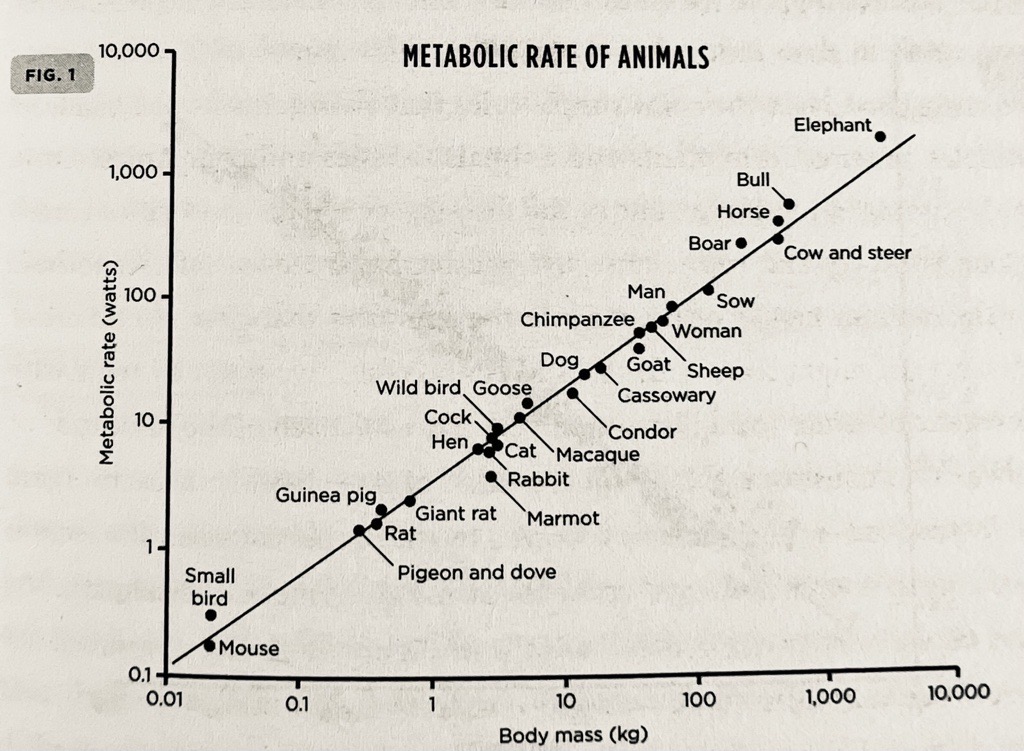1/ The Santa Fe approach (@sfiscience) to #complexityeconomics.
'Here was this elusive "Santa Fe approach": Instead of emphasizing decreasing returns, static equilibrium, and perfect rationality, as in the neoclassical view,'
'Here was this elusive "Santa Fe approach": Instead of emphasizing decreasing returns, static equilibrium, and perfect rationality, as in the neoclassical view,'

2/ 'the Santa Fe team would emphasize increasing returns, bounded rationality, and the dynamics of evolution and learning.'
3/ 'Instead of basing their theory on assumptions that were mathematically convenient, they would try to make models that were psychologically realistic.'
4/ 'Instead of viewing the economy as some kind of Newtonian machine, they would see it as something organic, adaptive, surprising and alive.'
5/ 'Instead of talking about the world as if it were a static thing buried deep in the frozen regime, as Chris Langton might have put it, they would learn how to think about the world as a dynamic, ever-changing system poised at the edge of chaos.'
6/ '"Of course, that was not a totally new point of view in economics," says Arthur.
The great economist Joseph Schumpeter may not have known words like "the edge of chaos," but he had pushed for an evolutionary approach to economics as far back as the 1930s.'
The great economist Joseph Schumpeter may not have known words like "the edge of chaos," but he had pushed for an evolutionary approach to economics as far back as the 1930s.'

7/ 'Richard Nelson and Sidney Winter of Yale University had been trying to foment an evolutionary movement in economics since the mid-1970s, with some success. And other researchers had even made some early attempts to model the effects of learning in economics.'
8/ '"But in these earlier learning models", says Arthur, "you assumed that the agents had already formed a more-or-less correct model of the situation they were in, and that learning was just a matter of sharpening up the model a bit by adjusting a few knobs.'
9/ '"What we wanted was something much more realistic. We wanted these internal models to emerge - to form inside the agents' minds, so to speak - as they learned. And we had a slew of methods we could use to analyze that process.'
10/ '"There were Holland's classifier systems and genetic algorithms. Richard Palmer was just finishing a book on neural networks. David Lane and I knew how to mathematically analyze systems that learned on the basis of probability.'
11/ '"Ermoliev and Kaniovski were experts on stochastic learning. And we had the whole literature in psychology. These approaches gave us a really fine-grained way to model adaptation, to make it algorithmically precise.'
12/ "In fact," Arthur adds, "the key intellectual influence that whole first year was machine learning in general and John Holland in particular - not condensed-matter physics, not increasing returns, not computer science, but learning and adaptation.'
13/ '"And as we started to kick it around with Arrow and Hahn and the others, it was clear that what was exciting to all of us was an instinct that economics could be done in this very different way."'
14/ W. Brian Arthur's thoughts in Waldrop's Complexity.
Listen to W. Brian Arthur of @PARCinc and Ext Prof @sfiscience speak on @SimplifyingComplexity
Apple Podcasts: lnkd.in/g5_8rqvD
Google Podcasts: lnkd.in/ganrC8CS
Spotify: lnkd.in/gjBAeTy2
Listen to W. Brian Arthur of @PARCinc and Ext Prof @sfiscience speak on @SimplifyingComplexity
Apple Podcasts: lnkd.in/g5_8rqvD
Google Podcasts: lnkd.in/ganrC8CS
Spotify: lnkd.in/gjBAeTy2

15/ Tweet 1 photo credit: santafe.edu/about/history (George Cowan)
• • •
Missing some Tweet in this thread? You can try to
force a refresh









